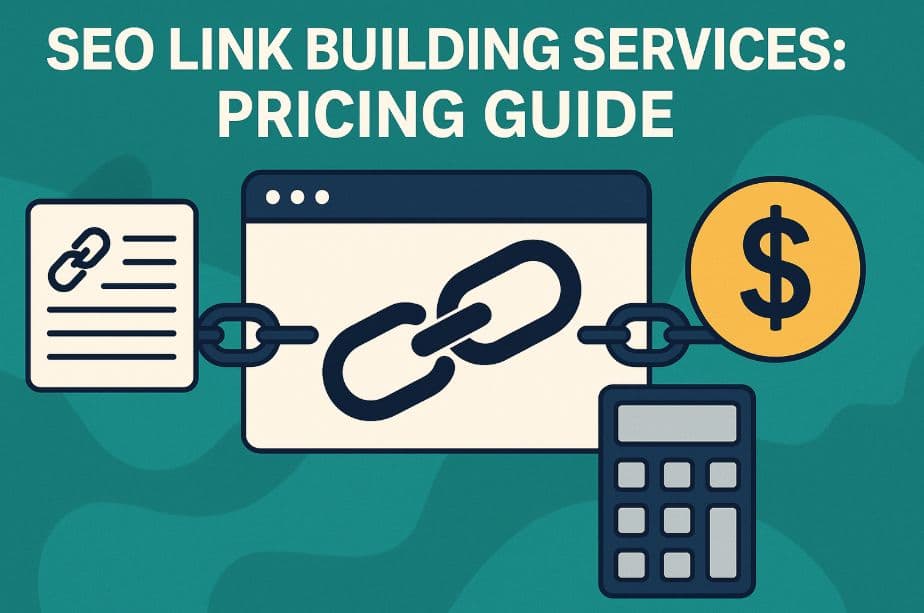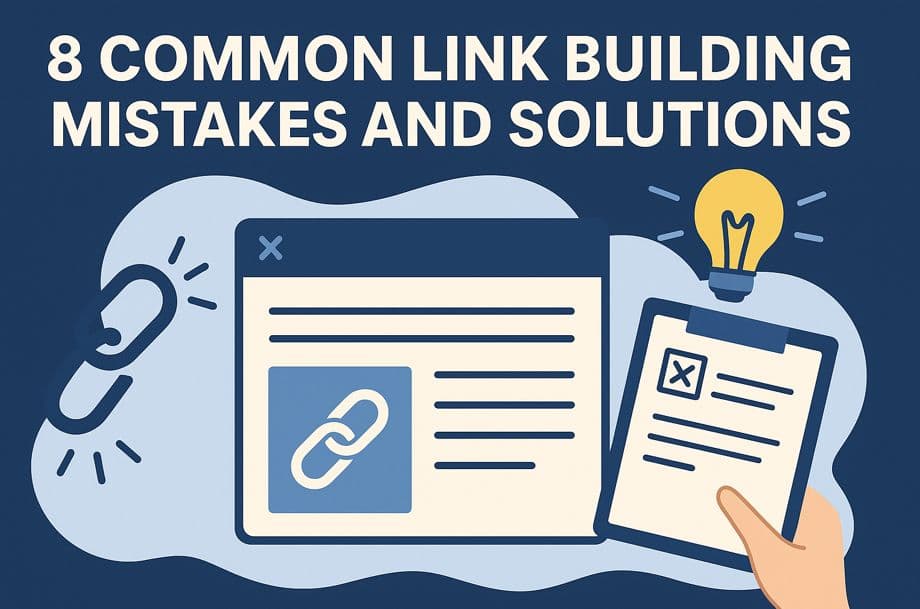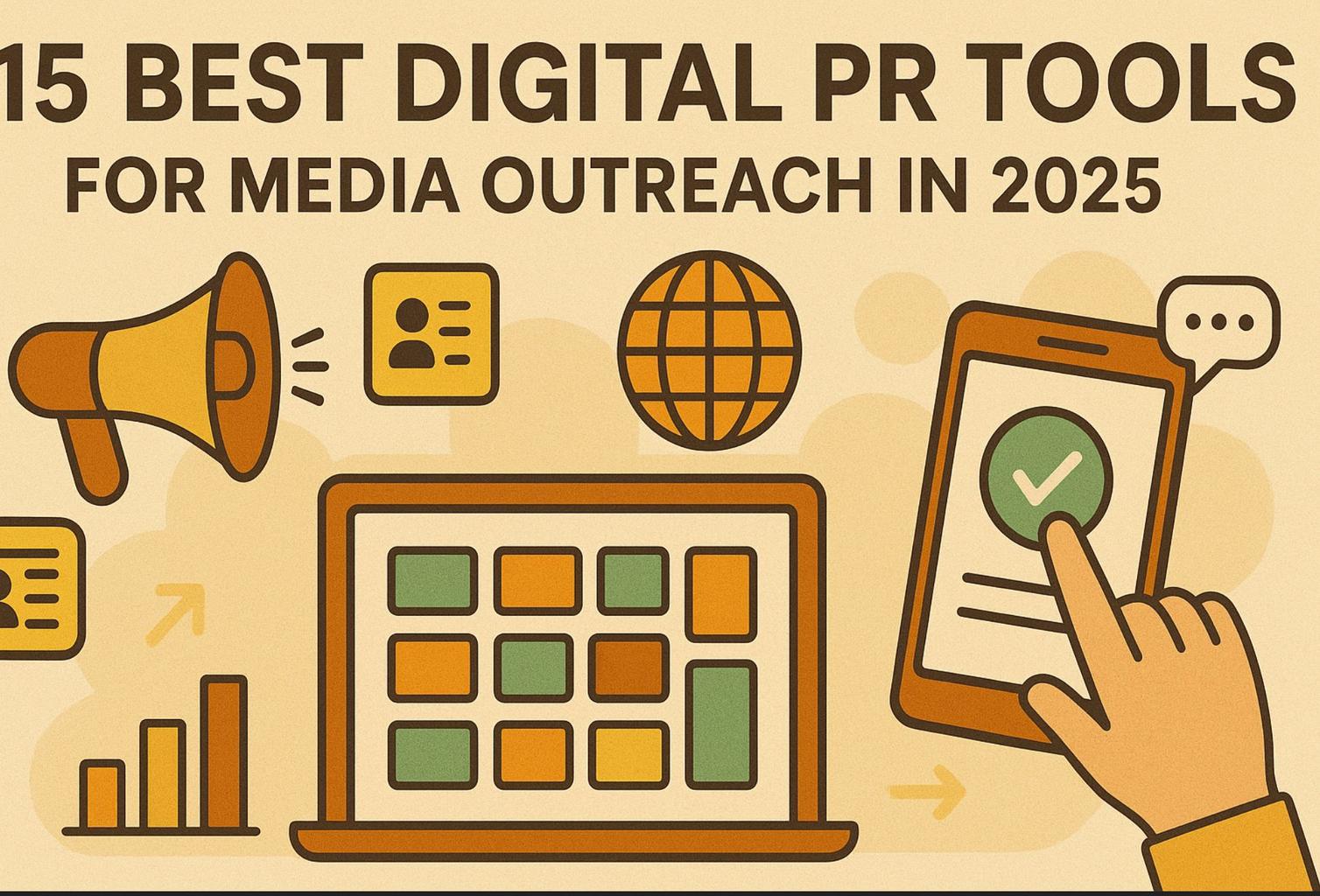When it comes to boosting your online presence, PR tools and SEO tools serve different roles:
- PR tools help manage media relations, build connections with journalists, and monitor your brand's reputation. They focus on earned media, sentiment tracking, and credibility building.
- SEO tools optimize your website for search engines, focusing on keyword research, technical audits, and improving search rankings to drive organic traffic.
Key Takeaways:
- Use PR tools for media outreach, press release distribution, and reputation monitoring.
- Use SEO tools for keyword analysis, fixing technical site issues, and tracking search performance.
- Combining both can amplify results, as PR can generate backlinks that support SEO efforts.
Quick Comparison
| Factor | PR Tools | SEO Tools |
|---|---|---|
| Purpose | Build media relationships, earn coverage | Improve search rankings, drive traffic |
| Audience | Journalists, influencers | Search engines, website visitors |
| Key Features | Media databases, press release tracking | Keyword research, site audits |
| Results Timeline | Days to weeks | 3–6 months |
| Pricing | $100–$2,000+/month | $99–$500+/month |
Both tools are essential for a balanced digital marketing strategy, but your choice depends on your goals - credibility and awareness vs. long-term traffic growth.
How Does PR Impact SEO? - BusinessGuide360.com
What PR Tools and SEO Tools Do
PR tools handle media relations, while SEO tools enhance search engine performance. These separate roles set the stage for comparing their features and determining which aligns best with your goals.
PR Tools Functions
PR tools are designed to connect you with journalists, influencers, and publications to secure earned media coverage. They often include features like media databases for finding contacts, tools for distributing press releases, and options for managing influencer partnerships.
Media monitoring is another key feature, helping you track brand mentions across news outlets, blogs, and social media platforms. This allows for quick responses to coverage and helps manage public sentiment. Additionally, reputation management tools help coordinate responses during crises or monitor overall brand perception.
While PR tools focus on building credibility through media coverage, their emphasis on relationship and sentiment data sets them apart from SEO tools, which we’ll dive into next.
SEO Tools Functions
SEO tools are all about improving your website's visibility on search engines by identifying areas for optimization and tracking performance metrics.
Top SEO tools provide insights into target keywords, search volume, and competition levels. They also offer rank tracking to monitor your website’s position in search results over time. For example, Clearscope’s Essentials plan starts at $189/month, showcasing the value of advanced SEO analytics and optimization tools.
Technical audits are another major component, helping you identify issues like slow page speeds, broken links, and mobile responsiveness - factors that directly impact rankings. Additionally, backlink analysis tools evaluate the quality of websites linking to yours, offering insights into link-building opportunities.
Content optimization is also a standout feature. For instance, Surfer starts at $99/month and uses AI-driven suggestions to align your content with search engine preferences.
The key difference lies in their focus: PR tools measure media coverage and public sentiment, while SEO tools track rankings, traffic, and technical website performance. Both are essential, but they address distinct aspects of digital marketing.
Main Features Comparison
Understanding the capabilities of PR and SEO tools is key to deciding which aligns with your marketing goals. Both tool types serve unique purposes, with distinct features tailored to their specific objectives. Here's a closer look at what each brings to the table.
PR Tool Features
PR tools are all about managing media relationships and securing earned media coverage. They typically include:
- Media databases: These provide access to journalist contacts, their beats, and publication details. For instance, Cision boasts an extensive global media contact database, while Muck Rack specializes in tracking real-time journalist activity.
- Pitch automation and personalization: Streamline your outreach with customizable email templates, scheduled follow-ups, and open rate tracking. Many platforms even offer pre-designed templates tailored to different industries and story angles.
- Press release distribution: Share your announcements with relevant news outlets and wire services, often targeting by location, industry, or media type. Analytics reveal pickup rates, reach, and which outlets published your content.
- Media monitoring and sentiment analysis: Track brand mentions across news sites, blogs, and social platforms in real time. These tools often assign sentiment scores to coverage, flag potential reputation issues, and differentiate between earned, owned, and paid media mentions.
- Campaign reporting: Measure success with metrics like media impressions, share of voice, and earned media value, often compared against advertising benchmarks.
While PR tools focus on building and maintaining media relationships, SEO tools take a different route, emphasizing website performance and search visibility.
SEO Tool Features
SEO tools are designed to enhance your website's technical health and provide data-driven insights. Their key features include:
- Keyword research: Uncover search volumes, competition levels, and related opportunities. For example, Ahrefs provides keyword data across multiple search engines and regions.
- Site auditing: Identify technical issues like broken links, slow loading speeds, duplicate content, and mobile usability problems. These audits typically include prioritized recommendations for fixes.
- Rank tracking: Monitor your site's keyword rankings over time, with many tools offering location-specific and device-specific tracking. Some platforms also track competitor rankings to give you a clearer picture of your standing.
- Backlink analysis: Evaluate the quality and quantity of external links pointing to your site. This includes identifying harmful links, assessing link authority, and uncovering new link-building opportunities by studying competitor backlinks.
- Content optimization: Analyze your existing content and get recommendations to improve search performance. Some tools even use AI to suggest changes in keyword usage, content length, and semantic variations based on top-ranking pages.
- Competitor analysis: Gain insights into your competitors' SEO strategies, including their top-performing keywords, content gaps, and backlink sources, to identify new opportunities.
When to Use Each Tool Type
Deciding between PR and SEO tools depends on what you’re trying to achieve with your marketing efforts. Each serves a distinct purpose, and knowing when to use them can mean the difference between a campaign that thrives and one that falls flat. Let’s dive into when each type of tool works best.
Best Uses for PR Tools
PR tools shine when your focus is on building brand awareness and gaining credibility through third-party endorsements. They’re particularly effective for major announcements and managing your reputation.
- Product launches and big announcements: If you’re introducing something new, PR tools are invaluable for generating buzz. Media coverage can often deliver the excitement that paid ads can’t replicate. Timing is everything here - reach out to journalists when they’re most likely to engage, and tailor your pitch to their specific interests.
- Crisis communication: When negative press or reputation issues arise, PR tools become essential. They offer real-time monitoring and direct access to key journalists, helping you respond quickly before a small issue spirals into a bigger problem.
- Maintaining media relationships: Regular communication with journalists who cover your industry ensures you’re top of mind when news breaks. Building these connections is an investment that pays off when you need coverage for future campaigns.
- Thought leadership campaigns: If your executives aim to position themselves as industry experts, PR tools can help you target trade publications and podcasts. This kind of outreach establishes them as reliable sources for insights and commentary.
Best Uses for SEO Tools
SEO tools, on the other hand, are all about boosting organic search visibility and driving qualified traffic to your website. They’re a must-have for businesses that rely on search engines to attract potential customers.
- Content strategy development: SEO tools help you create content based on keyword research that reflects what your audience is actually searching for. This ensures your efforts are focused on topics that will bring in traffic.
- Fixing technical website issues: From slow loading speeds to broken links, SEO tools can uncover hidden problems that hurt your search performance. Regular site audits can keep your website running smoothly and improve rankings.
- Competitive analysis: These tools reveal your competitors’ top-performing keywords, content gaps, and backlink strategies. This information helps you capitalize on opportunities they’ve missed or areas where you need to catch up.
- Tracking long-term growth: SEO tools are crucial for monitoring keyword rankings, traffic trends, and the results of your optimization efforts. They provide the data you need to refine your strategy over time.
- Local search optimization: For businesses targeting “near me” searches or location-based queries, SEO tools can track local rankings, improve your Google Business Profile, and uncover ways to boost visibility in your area.
Your choice between PR and SEO tools often depends on your company’s current stage. Startups might lean on PR tools to build initial awareness and credibility, while established businesses may focus more on SEO tools to capture existing demand and drive sustained growth.
sbb-itb-3230277
Side-by-Side Comparison
While both PR and SEO tools aim to boost your online presence, they take very different approaches to achieve this goal. PR tools focus on building relationships to secure media coverage quickly, while SEO tools work over time - typically 3 to 6 months - to improve search traffic through optimization strategies.
PR tools rely heavily on expertise in media relations and storytelling, whereas SEO tools demand technical skills like understanding algorithms, conducting keyword research, and optimizing websites. Below is a table breaking down these differences into actionable insights.
PR Tools vs SEO Tools Comparison Table
| Factor | PR Tools | SEO Tools |
|---|---|---|
| Primary Purpose | Build media relationships and earn coverage | Improve search rankings and organic traffic |
| Target Audience | Journalists, bloggers, influencers | Search engines and website visitors |
| Key Features | Media databases, pitch tracking, coverage monitoring | Keyword research, site audits, rank tracking |
| Data Sources | News outlets, social media, press releases | Search engines, website analytics, competitor data |
| Main Metrics | Media mentions, reach, share of voice | Organic traffic, keyword rankings, backlinks |
| Typical Results Timeline | Days to weeks for coverage | 3–6 months for ranking improvements |
| Content Focus | Newsworthy stories and press materials | Search-optimized web content |
| Relationship Building | Direct outreach to media contacts | Technical optimization and link building |
| Pricing Range | $100–$2,000+ per month | $99–$500+ per month |
| Best for Companies | Launching products, managing reputation | Driving consistent website traffic |
| Skill Requirements | Media relations, storytelling, networking | Technical SEO, data analysis, content strategy |
| Measurement Approach | Coverage quality and brand sentiment | Traffic volume and conversion rates |
Beyond these features, the differences in pricing and integration also play a critical role in decision-making. PR tools often come with higher costs because they provide access to expansive media databases and tools for managing relationships - resources that require constant updates and maintenance. On the other hand, SEO tools tend to have lower starting prices, though advanced enterprise solutions can be just as expensive as PR platforms.
Integration capabilities also set these tools apart. PR tools typically sync with social media monitoring platforms and CRM systems, making it easier to manage media relationships. SEO tools, however, are designed to integrate with analytics platforms, content management systems, and advertising tools, offering a more comprehensive view of your search performance.
How to Choose the Right Tool
Choosing between PR and SEO tools depends on what your business needs and the goals of your marketing efforts.
Start by identifying your main marketing priorities. If your focus is on improving search visibility, SEO tools are your best bet. They specialize in keyword research, rank tracking, and technical audits. On the other hand, if your goal is to build brand authority or establish thought leadership, PR platforms with strong ideation and trend analysis capabilities are essential.
Your company’s size and structure also influence your decision. Solo entrepreneurs and small businesses often benefit from lightweight, easy-to-use tools. In contrast, larger enterprises usually require more robust, integrated solutions that offer advanced analytics. This is where evaluating scalability and technical features becomes crucial.
Budget is another key factor. A lean startup might lean toward affordable, SEO-focused tools, while larger agencies may need platforms with advanced features to tackle complex campaigns. Make sure your budget aligns with your marketing challenges and long-term goals.
Team expertise also plays a role. Some SEO platforms come with steep learning curves, while others are designed for quicker onboarding. It's important to choose tools that are accessible to all team members, regardless of their technical skills.
Think long-term and opt for scalable solutions. Switching tools later can be both time-consuming and expensive. Look for providers that offer flexibility and support for future growth, including features like multilingual capabilities and support for international markets.
Data integration is another aspect to consider. Tools that work seamlessly together help eliminate data silos, making it easier to align your strategies. Whether you’re using PR or SEO tools, ensure they integrate well with your existing systems.
Keep in mind that PR and SEO are interconnected. Digital PR efforts can enhance SEO by earning high-quality backlinks, boosting brand awareness, and establishing authority in your industry. At the same time, SEO provides the foundation for content that PR campaigns can amplify.
For a streamlined comparison of digital PR tools and agencies, check out the AllDigitalPR Directory. This platform categorizes options like "Social Media Tools", "Influencer Marketing Agencies", "Link Building Tools", "Media Monitoring & Analytics", and "AI-Powered PR Tools." You can filter based on your specific campaign needs, use the "Compare Tools" feature to evaluate options side-by-side, and read reviews to make informed decisions about performance and suitability.
Conclusion
PR tools and SEO tools play different but complementary roles in any digital marketing strategy. SEO tools focus on improving your website’s visibility in search engines through keyword research, technical optimization, and tracking performance. On the other hand, PR tools are designed to enhance brand authority by managing media outreach, building relationships, and monitoring reputation.
When used together, these tools can deliver even greater results. For instance, a well-executed digital PR campaign can generate high-quality backlinks that strengthen your SEO efforts. Meanwhile, strong SEO foundations ensure that the content promoted through PR initiatives reaches the right audience. Companies that integrate both strategies often experience long-term growth in both online visibility and brand recognition.
These tools also provide valuable insights for shaping strategies and managing budgets. The AllDigitalPR Directory is a helpful resource for comparing tools across different categories, such as social media management, influencer marketing, link building, media monitoring, and AI-driven PR solutions. It allows you to read user reviews and use side-by-side comparisons to find the tools that best suit your marketing goals.
Whether you're just getting started or scaling up, understanding the unique strengths of PR and SEO tools can help you make smarter decisions about where to invest your time and resources. By combining these approaches, you can strengthen your online presence, improve search rankings, and build lasting brand authority.
FAQs
How can using PR tools and SEO tools together improve my digital marketing results?
Combining PR tools with SEO tools can take your digital marketing strategy to the next level by blending brand visibility with search optimization. PR tools are great for securing media coverage, earning valuable backlinks, and building a strong brand reputation. Meanwhile, SEO tools help you target the right keywords, climb search rankings, and attract organic traffic.
When these two are used together, they create a dynamic partnership. PR campaigns can generate high-quality backlinks and brand mentions, which SEO tactics can use to boost domain authority and improve search visibility. This combined strategy not only strengthens your online presence but also builds trust and helps you get the most out of your marketing investment.
How do I choose between PR tools and SEO tools for my business?
When choosing between PR tools and SEO tools, it’s important to start by clarifying your business goals. If your primary aim is to build brand awareness, manage your public reputation, or gain media coverage, PR tools are the way to go. These tools are specifically designed to assist with media outreach and help you build connections with journalists and influencers.
On the flip side, if your focus is on climbing search engine rankings, driving more organic traffic, or fine-tuning your keyword strategy, SEO tools are a must. They excel in areas like keyword research, link-building, and monitoring your website’s performance in search results.
In the end, the right choice depends on your marketing priorities - whether you’re looking to strengthen your public image or increase your online presence.
Can public relations efforts like media coverage and relationship building improve my website's SEO?
Public relations (PR) efforts, like securing media coverage and building strong relationships, can have a meaningful impact on your website's SEO. By earning quality backlinks through these initiatives, your site's authority gets a boost, which can lead to improved search engine rankings.
On top of that, mentions in the media and positive press coverage can elevate your online reputation, making your brand more visible and drawing in more organic traffic. Together, these benefits position PR as a key element in a comprehensive digital marketing strategy aimed at enhancing SEO results.


